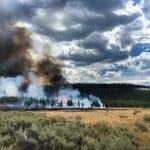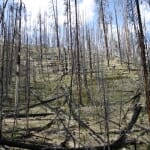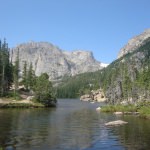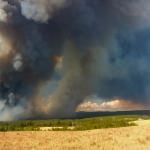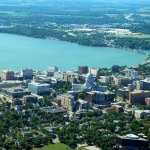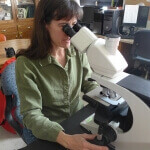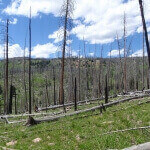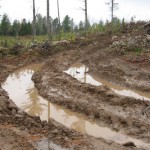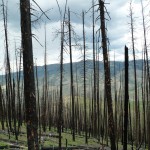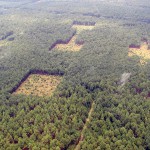Tag Forestry
UW–Madison biochemist wins prestigious forestry prize for discoveries that support sustainable energy and product innovations
UW–Madison biochemistry professor John Ralph has been awarded the forestry industry's top prize, alongside collaborator Wout Boerjan, a professor at Ghent University in Belgium, for their groundbreaking research on the molecular structure of lignin, one of the main components of plant cell walls. Read More
Lightning strikes shape tropical forests
New UW–Madison research helps establish lightning as an environmental driver that may dictate what trees will make up tropical forests in the future. Read More
All hands on deck to understand, predict, prevent abrupt ecological change
“It’s a generally thorny problem and we are often scrambling to react,” says lead principal investigator Monica Turner. “In fact, understanding abrupt change in ecological systems is among the biggest challenges in contemporary ecology.” Read More
New study examines where and how climate change is altering species
A new study shows how and where changing climate conditions could affect the communities of species in any given area. In… Read More
Thrive or fail: Examining forest resilience in the face of fires
“It’s not only western forests where these things matter, where disturbances and changing environments shape regional landscapes,” says Wisconsin researcher Monica Turner. Read More
Giant forest fires exterminate spotted owls, long-term study finds
A UW–Madison research group has documented an exodus of owls following the fierce, 99,000 acre King Fire in California in 2014. Read More
Spring comes sooner to urban heat islands, with potential consequences for wildlife
It may be music to gardeners’ ears, but that tune could be alarming to some native and migratory birds and bugs. Read More
Muddy forests, shorter winters present challenges for loggers
Stable, frozen ground has long been recognized a logger’s friend, capable of supporting equipment and trucks in marshy or soggy forests. Now, a comprehensive look at weather from 1948 onward shows that the logger’s friend is melting. The study, published in the current issue of the Journal of Environmental Management, finds that the period of frozen ground has declined by an average of two or three weeks since 1948. Read More



